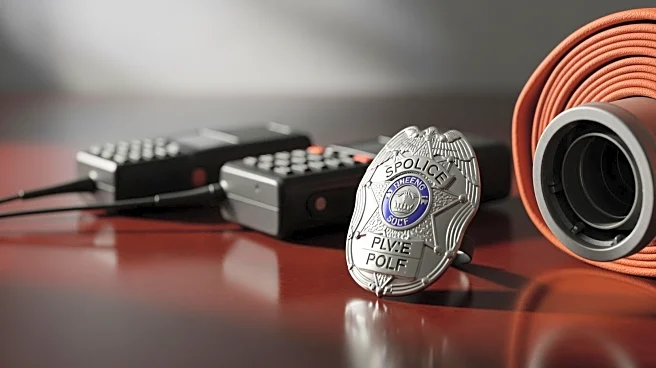Rapid Read • 8 min read
Nicole Clouse, head of intellectual property at Generate:Biomedicines, is tackling the complex legal questions surrounding AI in the biopharma industry. As AI models become integral in drug development, Clouse is focused on ensuring that existing intellectual property laws can accommodate these advancements. She highlights the need for a nuanced approach to AI policy, distinct from general AI applications like ChatGPT. Clouse is concerned about potential broad regulations that could stifle innovation in biopharma, emphasizing the unique cultural environment of the industry compared to traditional tech sectors. Generate is actively developing proprietary machine learning models to create new protein drugs, requiring high expertise and rapid iteration, which challenges traditional patent processes.
AD
The integration of AI in biopharma represents a significant shift in drug development, potentially accelerating the discovery of new treatments. However, this evolution raises critical legal questions about patentability and ownership of AI-generated innovations. Clouse's work is crucial in shaping the legal framework that will govern these technologies, impacting how biopharma companies protect their intellectual property. The outcome of these discussions could influence the pace of innovation and the competitive landscape in the industry. Ensuring that AI-driven advancements are adequately protected without hindering progress is vital for maintaining the U.S.'s leadership in biopharmaceutical research and development.
Clouse anticipates that the first litigation involving AI-generated biotech patents could occur soon, which would set precedents for future cases. The U.S. Patent and Trademark Office and Congress are actively seeking public input to inform policy decisions, indicating that regulatory changes may be forthcoming. Generate:Biomedicines continues to file patents for its AI-driven molecules while balancing openness in its machine learning approaches. The industry is closely monitoring these developments, as they will determine how AI tools are integrated into biopharma and how innovation is protected.
The ethical implications of AI in drug development are profound, as they challenge traditional notions of invention and creativity. The debate over whether AI-generated products can be considered human inventions touches on broader philosophical questions about the role of technology in society. Additionally, the cultural clash between the open-source ethos of tech and the proprietary nature of biopharma highlights the need for interdisciplinary collaboration to navigate these challenges effectively.
AD
More Stories You Might Enjoy











